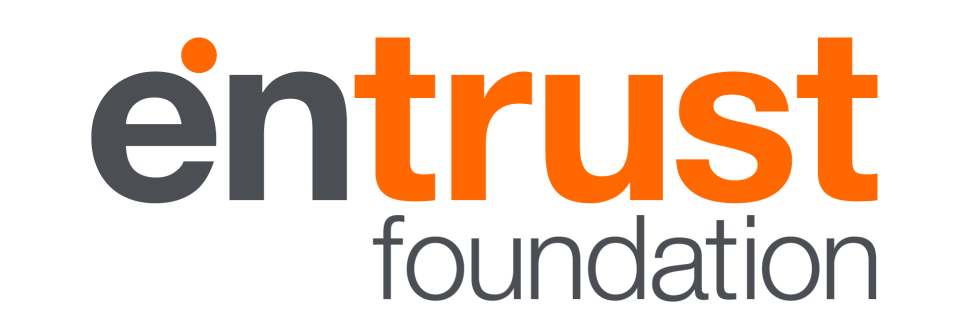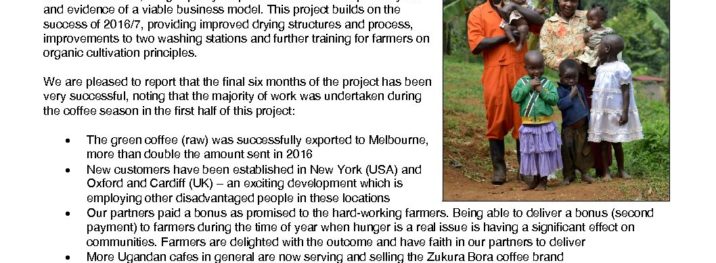Village Coffee Processing
Code:
UGA-JEN-CDP-P01
Country:
UgandaCause:
Economic EmpowermentPopulation:
45.7 millionHuman Dev Index:
#166 (Aus #5)Overview
In 2016 we provided our partners with funds for equipment to establish a coffee cooperative on Mt Elgon, near Mbale, in Uganda. As a result, four coffee processing centres and a drying centre were established and the first full crop was harvested with great results – fully engaged farmers, a high-quality crop with a better than expected yield and evidence of a viable business model. This project builds on the success of 2016 and will provide improved drying structures and process, improvements to two washing stations, together with further training for farmers on organic cultivation principles. The project will assist 1500 registered farmers with another 7,500 family members as indirect beneficiaries.
Why support this
Our partners have worked in development in this area for over a decade and are keen to work with farmers to move them past a hand-out model to an empowerment frame of mind. The project is designed to be a sustainable and profitable business. Having seen the excellent results of 2016 the farmers have embraced the new techniques and there is an appetite amongst the farming community to change and improve. Our partners, the farmers and the local government are working collaboratively as they can all see the how this will develop the area.
Objectives Include
- Since the brutal leadership of Idi Amin in the 1970s, Uganda has suffered the devastating effects of civil war, HIV/AIDS and rebel conflict, claiming the lives of the parents of more than two million children.
- The Mbale region is extremely poor.
- Farmers have previously grown coffee and have been left with little for their efforts due to unfair business practices and corruption.
- Many are subsistence farmers, and most suffer from a “hungry season” when food is scarce.
- Intergenerational poverty is the norm.
Expected Life Change
- Farmers gain new skills and a strong support network.
- A good yield and fair price improves the financial situation of farmers, allowing them to buy more food during the “hungry season”.
- The local community learn it is possible to operate business in a fair and transparent manner and still be profitable.

